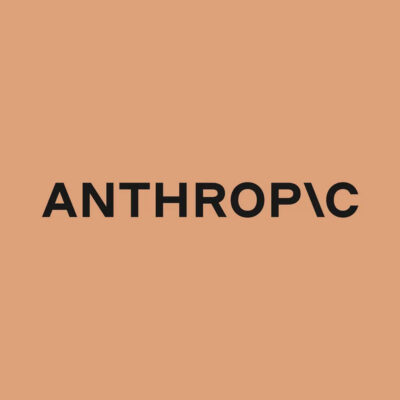Compare Models
-
OpenAI
Ada (fine tuning) GPT-3
$0.0016When fine-tuning a GPT model like Ada, you are fine-tuning the GPT-3 base model (not the instruction-oriented variant of GPT-3). Fine-tuning involves taking the pre-trained base model and further training it on your specific dataset or task to enhance its performance. Fine-tuning allows OpenAI API customers to leverage the power of pre-trained GPT-3 language models, such as Ada, while tailoring them to their specific needs (the fine-tuning process allows a model to specialize in a specific task or context, making it more efficient and effective for a particular use case, which can help to reduce costs and latency for high-volume tasks). You are also able to continue fine-tuning a fine-tuned model to add additional data without having to start from scratch.As the smallest GPT-3 model, Ada is less computationally intensive and quicker, making it ideal for tasks that don’t demand complex language understanding or generation. Note: There are two fine-tuning costs to be aware of, a one-time training cost and a pay-as-you-go usage cost. -
OpenAI
Ada Instruct model
$0.004Open AI’s Ada is usually the fastest and lowest cost Instruct model. InstructGPT models are sibling models to ChatGPT. They are built on GPT-3 models but made to be safer, more helpful, and more aligned to users’ needs using a technique called reinforcement learning from human feedback (RLHF). Instruct models are meant to generate text with a clear instruction, and they are not optimized for conversational chat. Instruct models are optimized to follow single-turn instructions (e.g., specifically designed to follow instructions provided in a prompt). Developers can use Instruct models for extracting knowledge, generating text, performing NLP tasks, automating tasks involving natural language, and translating languages. The Instruct models also make up facts less often than GPT-3 base models and show slight decreases in toxic output generation. Access is available through a request to OpenAI’s API. -
OpenAI
Babbage (fine tuning) GPT-3
$0.0024When fine-tuning a GPT model like Babbage, you are fine-tuning the GPT-3 base model (not the instruction-oriented variant of GPT-3). Fine-tuning involves taking the pre-trained base model and further training it on your specific dataset or task to enhance its performance. Fine-tuning allows OpenAI API customers to leverage the power of pre-trained GPT-3 language models, such as Babbage, while tailoring them to their specific needs (the fine-tuning process allows a model to specialize in a specific task or context, making it more efficient and effective for a particular use case, which can help to reduce costs and latency for high-volume tasks). You are also able to continue fine-tuning a fine-tuned model to add additional data without having to start from scratch.Babbage is a medium-sized GPT-3 model. It offers a balance between processing power and computational requirements. It is more capable than Ada but less so than Curie or Davinci. Note: There are two fine-tuning costs to be aware of, a one-time training cost and a pay-as-you-go usage cost. -
OpenAI
Babbage Instruct model
$0.0005Open AI’s Babbage Instruct model can understand and generate natural language. Babbage is capable of straightforward tasks, is very fast, and is comparatively lower priced than some other Instruct models. InstructGPT models are sibling models to ChatGPT. They are built on GPT-3 models but made to be safer, more helpful, and more aligned to users’ needs using a technique called reinforcement learning from human feedback (RLHF). Instruct model are meant to generate text with a clear instruction, and they are not optimized for conversational chat. Instruct models are optimized to follow single-turn instructions (e.g., specifically designed to follow instructions provided in a prompt). Developers can use Instruct models for extracting knowledge, generating text, performing NLP tasks, automating tasks involving natural language, and translating languages. Instruct models also make up facts less often than GPT-3 base models and show slight decreases in toxic output generation. Access is available through a request to OpenAI’s API.
-
OpenAI
ChatGPT (Web Browser Version)
FREEThe ChatGPT Web Browser Version is an accessible online powerful language model. The chatbot is designed to provide users with a user-friendly interface that facilitates interaction without needing any specialized programming or machine learning knowledge. Users can leverage ChatGPT for a wide range of applications, including but not limited to tutoring in academic subjects, generating creative content, drafting and editing text, providing personalized recommendations, translating languages, and even programming help. Businesses can use it for automating customer service, generating marketing content, and providing personalized user experiences.ChatGPT is powered by GPT-3.5-turbo by default and is free to try. If you are a paying customer and subscribe to ChatGPT Plus, you can change the model to GPT-4 before you start a chat. Currently, the ChatGPT models support several languages, including but not limited to English, Spanish, French, German, Portuguese, Italian and Dutch. New features for ChatGPT-Plus users have just been announced. These include a web-browsing feature that provides up-to-date information (prior to the update, ChatGPT was limited in what it could answer, as it was only trained on data until 2021). ChatGPT-Plus users can also access third-party plug-ins for web services like Expedia, Kayak, and Instacart. With these plug-ins, users can prompt ChatGPT to perform tasks on specific websites. -
OpenAI
ChatGPT API
$0.002OpenAI’s ChatGPT API is GPT-3.5-turbo. GPT-3.5-turbo is a more powerful version of GPT-3.5, and it has a larger vocabulary and can generate more realistic and coherent text. The API enables developers to integrate ChatGPT into their applications, products, or services and you can create interactive chatbots and virtual assistants, content generation, writing assistance, language translation, AI tutoring, product recommendations, sentiment analysis, code generation, and email/report drafting. The API is also more suitable for integrating AI into data pipelines, embedding GPT functionality in a dashboard to automatically provide a text summary of the results, and providing a natural language interface to your data. Please note that the ChatGPT API usage cost is not included in the ChatGPT Plus subscription, which is billed separately.Currently, the ChatGPT models support several languages, including but not limited to English, Spanish, French, German, Portuguese, Italian and Dutch. -
Anthropic
Claude 2 – API version
$0.03268Anthropic’s Claude 2 much larger context window (launching with 100k for now but will go up to 200K).will make it possible to feed it entire books or have it generate entire books at once.Claude 2 scored 76.5 percent on the multiple choice section of the Bar exam and in the 90th percentile on the reading and writing portion of the GRE. Its coding skills have improved from its predecessor scoring 71.2 percent on a Python coding test compared to Claude’s 56 percent.Claude 2 is also 63% cheaper on inputs and 46% cheaper on outputs than the GPT-4 8K context version (the default version of the OpenAI model). -
OpenAI
Claude 2 (Web Browser Version)
FREEAnthropic’s Claude 2 is now available to the public if you’re in the US or UK. For the web browser version. just click “Talk to Claude,” and you’ll be prompted to provide an email address. After you confirm the address you enter, you’ll be ready to go.Claude 2 scored 76.5 percent on the multiple choice section of the Bar exam and in the 90th percentile on the reading and writing portion of the GRE. Its coding skills have improved from its predecessor scoring 71.2 percent on a Python coding test compared to Claude’s 56 percent. While the Google-backed Anthropic initially launched Claude in March, the chatbot was only available to businesses by request or as an app in Slack. With Claude 2, Anthropic is building upon the chatbot’s existing capabilities with a number of improvements. -
Anthropic
Claude Instant
$0.00551Claude Instant is a faster and less expensive model than Claude-v1 that can handle casual dialog, text analysis and summarization, and document Q&A. Optimized for low latency, it handles high throughput use cases at lower costs that other Claude family of models. Anthropic is an AI startup founded by former OpenAI employees. Anthropic specializes in developing general AI systems and language models, with a company ethos of responsible AI usage.API access can be gained after application. -
Anthropic
Claude Instant v1
$0.03268A powerful model, Claude-v1 can handle sophisticated dialog, creative content generation, and detailed instructions. Optimized for superior performance on tasks that require complex reasoning, Claude is Anthropic’s best-in-class offering.API access can be gained after application. -
OpenAI
Curie (fine tuning) GPT-3
$0.012When fine-tuning a GPT model like Curie, you are fine-tuning the GPT-3 base model (not the instruction-oriented variant of GPT-3). Fine-tuning involves taking the pre-trained base model and further training it on your specific dataset or task to enhance its performance. Fine-tuning allows OpenAI API customers to leverage the power of pre-trained GPT-3 language models, such as Curie, while tailoring them to their specific needs (the fine-tuning process allows a model to specialize in a specific task or context, making it more efficient and effective for a particular use case, which can help to reduce costs and latency for high-volume tasks). You are also able to continue fine-tuning a fine-tuned model to add additional data without having to start from scratch.Curie is a larger variant of GPT-3, offering more sophisticated language capabilities. It is a good choice for tasks requiring a deeper understanding of context or more complex language generation. Note: There are two fine-tuning costs to be aware of, a one-time training cost and a pay-as-you-go usage cost. -
OpenAI
Curie Instruct model
$0.002Open AI’s Instruct model Curie is very capable and is faster and costs less than Davinci. Curie can understand and generate natural language. InstructGPT models are sibling models to ChatGPT. They are built on GPT-3 models but made to be safer, more helpful, and more aligned to users’ needs using a technique called reinforcement learning from human feedback (RLHF). Instruct models are meant to generate text with a clear instruction, and they are not optimized for conversational chat. Instruct models are optimized to follow single-turn instructions (e.g., specifically designed to follow instructions provided in a prompt). Developers can use Instruct models for extracting knowledge, generating text, performing NLP tasks, automating tasks involving natural language, and translating languages. Instruct model also make up facts less often than GPT-3 base models and show slight decreases in toxic output generation. Access is available through a request to OpenAI’s API.




